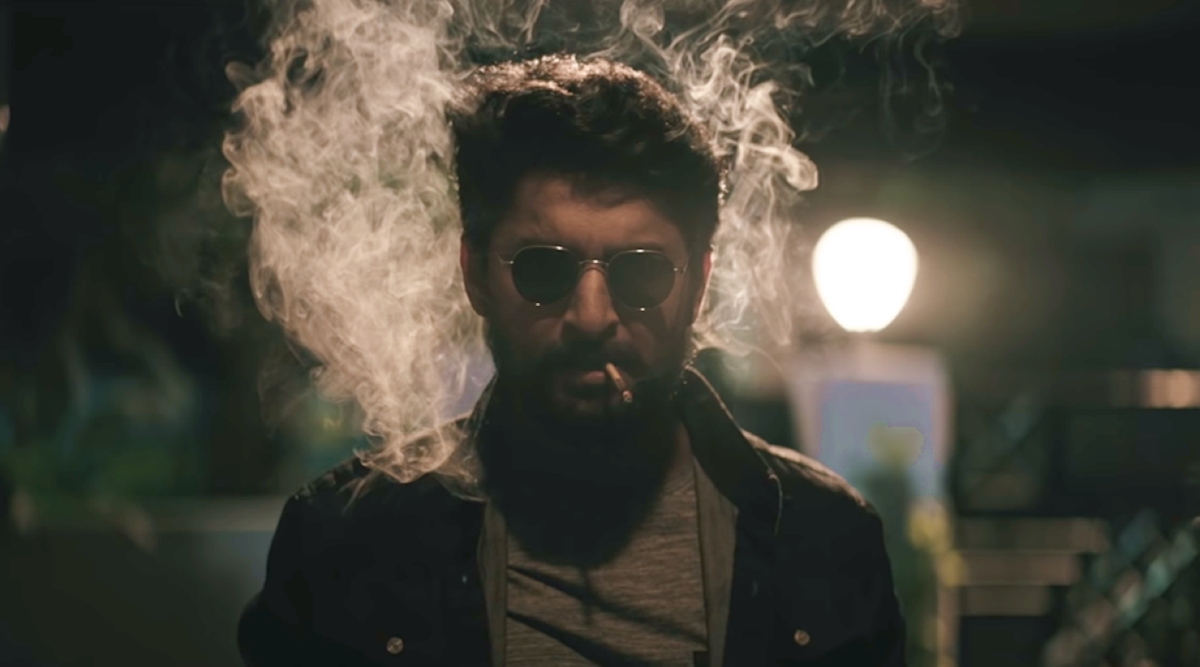 A still from V, starring Nani (Photo: Amazon Prime Video).
A still from V, starring Nani (Photo: Amazon Prime Video). The Bombay High Court on Thursday allowed the edited version of Telugu film ‘V’ to be released on Amazon Prime Video, after the OTT platform said that it has removed the movie and the producers have also deleted actor-producer Sakshi Malik’s objectionable image from the film.
The court directed the producers of the movie to file affidavits in response to an application filed by Malik, seeking that costs be imposed on them for using her photograph without prior permission.
A single judge bench of Justice Gautam S Patel, while hearing Malik’s defamation suit, had directed the OTT platform on March 2 to take down the film until the makers delete a scene/sequence, in which Malik’s photograph had allegedly been used without permission while portraying a female escort or a commercial sex worker. Malik had said that a photograph posted on her Instagram account from her 2017 portfolio was used in the movie. She had filed the defamation suit against Venkateswara Creations Private Limited and V Venkata Ramana Reddy, producers of the film, which was released on September 5, 2020 and is available on Amazon Prime Video. The HC, while restraining the producers from releasing the film on any other media platform until the deletions are effected, had said that Amazon Prime cannot release any re-edited version of the film, even after deleting the offensive portion, without specific order from the court.
While Amazon informed the HC on Thursday that it had deleted the movie within 24-hours of the court order, the producers submitted that they have deleted the actor’s image. Amazon sought the film to be re-released, which the court allowed. However, the HC clarified that Malik’s photograph cannot be used without her approval.
Justice Patel noted that while the said image has been now deleted, the approach of the producers and makers of the film was casual. “The entire approach (of producers) is casual and cavalier in the extreme with no thoughts spared to the consequences on the person’s (Malik) image whose photograph is used.”
The court asked defendants’ advocate Akash Menon, “This is much larger than what you think it is. They (plaintiff’s counsels) are spot on about the objectification of women. This nonsense has got to stop. Don’t they (agency) have stock of open-source photographs? Open source does not mean you have all the rights to use the photograph. What is the creativity about this agency? This is theft.”
“Does the producer know anything about the license? The plaintiff could have gone for copyright infringement. What about the individual’s right to privacy and dignity? Does your producer have women in his family? Why did he not use their images in the film? It is because he knew the context in which they were going to be used. So, he thought he could use anybody’s image,” the judge added.
The court, while agreeing to the argument of imposing cost on producers, directed them to file affidavits in response to Malik’s application. The court will hear the matter next on March 25.